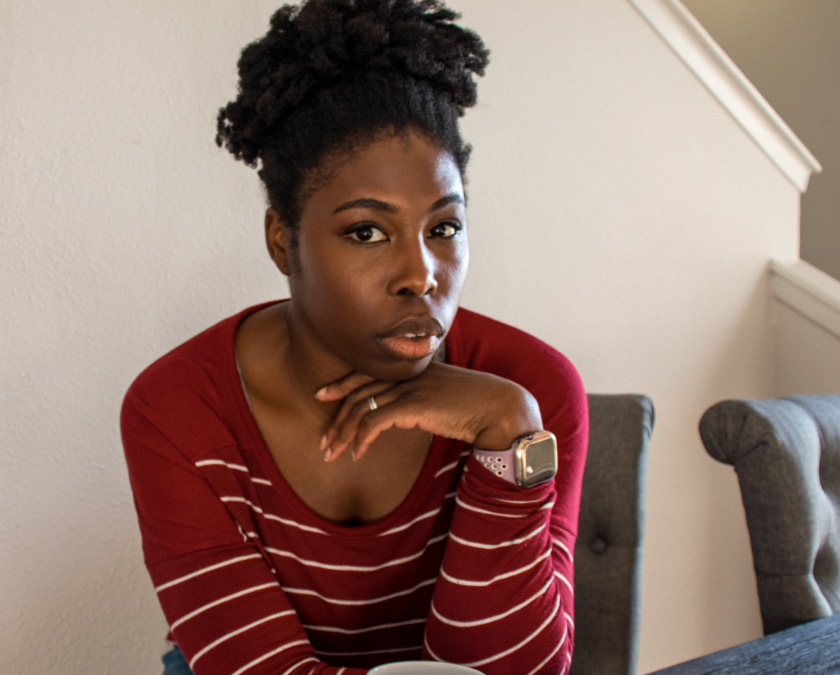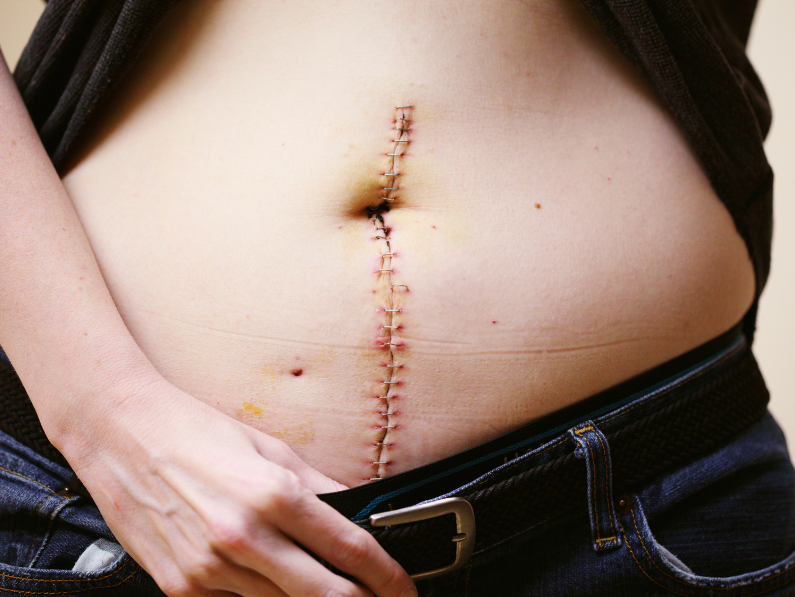Mental illness can be difficult to manage sometimes. But having structure and routine can make getting through the ups and downs of mental illness easier. I’ve talked about the power of routine in a previous post linked here. So, I recognize why creating systems to decrease overwhelm, reduce anxiety and improve focus is essential. Not only does it help keep you on track, but it improves your quality of life. The perfect way to accomplish this is by developing specific minimalist habits that provide a mindful and simple approach to managing your mental illness.
Page Contents
6 Minimalist Habits To Experiment With
Minimalist Habit #1: Create A Calm Aesthetic
Your environment is important and has a major impact on your mood. Excess clutter and disorganization make it easier to lose items, become more forgetful, and feel frazzled. This is why minimalist habits are great for creating a serene, organized, and neat environment.
Your first step in accomplishing this is to declutter and purge the items that are no longer useful. Doing so allows you to focus on the things that are the most beneficial to you. Furthermore, having a set place where things belong can prevent you from losing items or forgetting where things are. Additionally, finding attractive ways to store and organize these items neatly will decrease visual clutter.
If you want to take it a step further, you can also infuse some minimalist flair with your interior design. Choose a simple basic neutral color palette. Allow this color palette to inspire you to choose bed linens, furniture, and other essential home items to create a minimalist aesthetic. Scandinavian interior design is known for its minimal and functional approach to interior decorating. Of course, you can opt to stick with the minimal decorating style, which focuses on the bare essentials and staying away from too many decorative items.

Minimalist Habit #2: Tidy As You Go
This is such a simple yet hard to follow habit. However, learning to clean and tidy as you go will decrease the amount of time you spend cleaning. Getting in the habit of cleaning up after you finish eating by wiping down surfaces and countertops. Doing a load of laundry every day or every other day, so it doesn’t pile up. Running the dishwasher at the end of the day and putting them away before going to bed.
Another beneficial habit is creating a chore list or chore chart and assign certain days for certain chores. This is a great idea if you have roommates or a family you can enlist to help.
If it’s within your budget, hiring someone to help keep your home tidy can help. Having someone come weekly, bi-weekly, or monthly can help take some of the pressure off you. This is especially helpful if you’re struggling with a tough mental health season. Even if it’s temporary, having someone helping you manage the basics when you’re struggling is a beneficial tool.
Minimalist Habit #3: Meal Plan & Meal Prep
Planning your meals in advance makes grocery shopping easier. Not only are you able to purchase the ingredients you need for the various meals you’ll prepare during the week. You can also create a list of essential pantry and freezer items you regularly use. In this way, you’re always stocked. Doing this helps decrease food waste because you’re focusing on the ingredients and foods you need for your recipes. And, you’re purchasing items you frequently use and want to keep on hand. I talk a little more about meal planning in this post.
The second step of planning your meals and snacks for the week is prepping them. Setting aside specific pockets of time to prep meals for the week reduces the amount of time spent cooking in the kitchen. And it reduces the amount of time you spend cleaning up messes after each meal you prepare. Furthermore, you have the option to create meals that you can freeze for the future. Just in case you’re not up to cooking and going through a tough time. You’ll have premade meals to re-heat. Which can prevent a lot of unnecessary expense with eating out.

Minimalist Habit #4: Give Capsule Wardrobes A Try
Capsule wardrobes are minimalist habits that focus on paring down your wardrobe to your most worn pieces. These basic essentials should fit your lifestyle and your body right now. Furthermore, being able to mix and match various pieces creates different outfits. Plus, it allows versatility to prevent boredom. Additionally, as seasons change and time passes, you may experience changes in your body’s aesthetic. Aim to intentionally and consciously add new pieces that represent this new phase.
In addition to creating a capsule wardrobe taking the time to choose your outfits in advance can also streamline your morning by preventing decision overwhelm. Set aside time in the evening to choose your outfit and accessories for the next day. In the morning, you can reduce the amount of time it takes for you to get ready.
Minimalist Habit #5: Spend Wisely
Impulsive shopping sprees or emotional spending can get you in big trouble. It’s easy to mindlessly purchase things and drain a bank account or rack up credit card debt. Creating a budget and sticking to it can train you to become more intentional with what you spend your money on. Creating a list of your essential expenses will determine how much your income needs to be allocated to cover your basic cost of living.
Whatever is leftover can go to non-essential spending such as shopping, entertainment, eating out, etc. This makes you more responsible because you’re aware of your monthly income, how much your income covers, due dates for bills, and how much you can dedicate to non-essential spending.
Another budgeting habit is learning how to track expenses. This increases your awareness of what you spend money on. And, you get to see where you’re spending the most money. Doing this allows you to find solutions to stop unnecessary spending.
Another option to help you gain control of your spending is to set daily spending limits on your debit and credit cards. Keep a check register to track expenses daily and know how much money you have in your accounts at all times. These two actions will encourage you to pause and consider if it’s worth making that purchase.

If you struggle with keeping money in your savings account, consider putting the bulk of your money onto a CD (certificate of deposit). The way CD’s work is you put a set amount into the account( usually $1,000 and up, but some financial institutions have zero minimum deposits) for a specific time while collecting interest. Common time frames are six months and 12 months. The longer the time frame, the more interest is earned.
Once the time has expired, you get the option to renew or move it elsewhere. Doing this prevents you from draining your savings account since you can’t withdraw from this account without being charged a hefty fee.
Furthermore, work with your partner to properly budget and manage finances. Doing so creates checks and balances that help you progress to becoming fiscally responsible. Another option is to invest in a financial advisor to help guide you and teach you proper money management. However, not everyone can afford a financial advisor, but a close friend or family member who’s a financial wizard may provide help.
Minimalist Habit #6: Decrease Mental Clutter
As a mental illness warrior, you may struggle with racing invasive thoughts or a flight of ideas. Which is not only distracting but prevents you from focusing and being present. Honestly, there isn’t an easy solution to this that I’ve found. Yet, you may find these two actions beneficial. The first is to write down the thoughts, ideas, or worries that frequently race through your head. In this way, you acknowledge these thoughts and get them out, and you don’t have to concentrate on them. Afterward, you can do some simple breathwork and focus on breathing in and out for a few minutes before continuing with your task.
The second thing is to ground yourself and focus on your breath. Try reciting a bible verse, phrase, or poem. Focus on a specific phrase such as an I am statement. Whichever grounding technique you use, make sure to focus on taking deep, controlled breaths.
Another activity that helps decrease mental clutter is to journal. Getting your feelings and frustrations out prevents them from clogging your brain. You can also use journal prompts to encourage self-reflection. Or, you can set goals and work on building habits.
Find What Works For You
Experiment with these minimalist habits and find what works for you. They are simple and easy to implement in the areas you feel need the most work. Furthermore, combining these habits with therapy and proper psychiatric care ensures you are working to treat your mental illness from all angles. This approach can yield positive results by improving your quality of life and mental health.







Great article! My favorite habits were spending wisely and creating a calm aesthetic 🙂